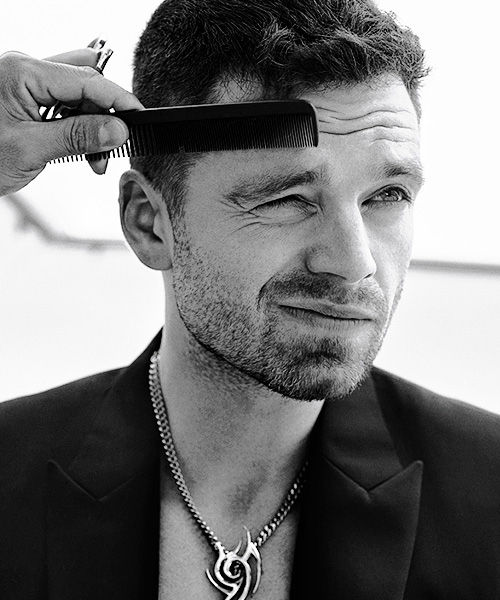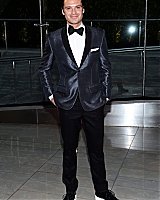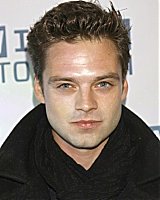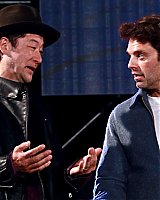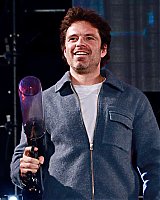‘The Falcon and the Winter Soldier’ starts streaming March 19th on Disney+.
Disney+ and Marvel Studios recently released 6 high quality episodic stills of Sebastian as The Winter Soldier from ‘The Falcon and The Winter Soldier’ first season. You can check those out in the gallery now.




In case you missed it when it aired you can check out the 2 minute long trailer for ‘The Falcon and the Winter Soldier’ which aired during the Super Bowl earlier this month. You can also check out an additional television spot with a little extra footage in addition to some high quality Promotional Artwork and Screen Captures from the trailers in the gallery now.
‘The Falcon and the Winter Soldier’ premires on exclusively on Disney+ on March 19th.






The Falcon and the Winter Soldier (2021) > S1 > TV Spot #01 – Screen Captures
The Falcon and the Winter Soldier (2021) > S1 > Promotional Artwork
The Falcon and the Winter Soldier (2021) > S1 > Production Stills
Hey guys! I know it’s been kind of quiet from my end in regards to updates and without diving into details I’ll just say life hasn’t been super nice in regards to having time or motivation to work on the site. However, in my downtime I’ve finally gotten all of Sebastian’s previously released films capped and uploaded into the gallery. You can check those out below by clicking the links to the gallery.








We Have Always Lived in the Castle (2019) > Movie Captures
Destroyer (2018) > Movie Captures
Avengers: Endgame (2019) > Movie Captures
The Last Full Measure (2020) > Movie Captures
The Last Full Measure (2020) > Behind The Scenes – Screen Captures
The Devil All the Time (2020) > Movie Captures
Endings, Beginnings (2020) > Movie Captures
Deadline — IFC Acquires ‘Monday,’ Sebastian Stan & Denise Gough Greece Romancer Set For April 16 Release.
EXCLUSIVE: IFC Films has acquired North American rights to Argyris Papadimitropoulos’ latest feature Monday, a sizzling romance that stars Sebastian Stan (Avengers Endgame and I, Tonya) and Denise Gough (Colette).
When Mickey (Stan) is dragged away from his DJ set by a drunken friend and introduced to Chloe (Gough) one hot summer night in Athens, the attraction between the pair is immediately palpable—so palpable that before they know it they’re waking up naked on the beach Saturday morning. And so it goes that a one night stand on Friday turns into a whirlwind weekend romance that leads to serious conversations when they face the harsh sunlight on Monday morning.
Pic is produced by Christos V. Konstantakopoulos, Brian Kavanaugh-Jones, Damian Jones, Deanna Barillari, and Papadimitropoulos at Faliro House. Script is co-written by Argyris Papadimitropoulos and Rob Hayes.
‘Monday’ is Argyris Papadimitropoulos’ fourth feature, an official selection at the 2020 Tribeca Film Festival and 2020 Toronto International Film Festival that were both hobbled by the pandemic. IFC Films will release the film on April 16th, 2021 day and date theatrically and on demand.
Said director Argyris Papadimitropoulos: “In many ways, the film has become even more relevant in this current environment, as all relationships got challenged during the lock down and Chloe’s and Mickey’s story is a very realistic take on relationships. At a time when things have started getting more optimistic in the world and a summer trip to Greece, crowded parties, people kissing and having fun is something we are all longing for – I believe the timing is perfect to release the film and the fact that it found a home at IFC Films, makes my smile a little bigger.”
The deal for the film was negotiated by President of IFC Films Arianna Bocco with ICM Partners and Protagonist Pictures on behalf of the filmmakers.
Deadline.com — Hulu has had its fair share of high-profile series, but the streamer now is set to profile one of Hollywood’s more iconic couples and the scandal that shook the industry when it comes to celebrity privacy.
Sources tell Deadline that Lily James and Sebastian Stan are on board to play former Baywatch star Pamela Anderson and Mötley Crüe drummer Tommy Lee in a new limited series for Hulu going by the working title Pam & Tommy. The rockstar couple’s relationship dominated the tabloids for years, including the scandal of when their sex tape from their honeymoon was stolen and leaked to the public. Seth Rogen is on board to play the man who stole the tape, with I, Tonya director Craig Gillespie helming the series and Rob Siegel writing. Rogen is also producing the project along with his partner Evan Goldberg through their Point Grey banner along with Dylan Sellers through Limelight and Sue Naegle and Megan Ellison at Annapurna. The eight-episode series will shoot in the spring.
Point Grey has spearheaded the development as Rogen and Goldberg brought the original idea to the table.
While the scandalous event will play a major part in the series, the story will have a big focus on their relationship going back to their whirlwind romance that started with them marrying after only knowing each other for 96 hours in 1995. The leaked VHS tape turned into quite the legal dispute, with Anderson suing the video distribution company Internet Entertainment Group. Ultimately, the Lees entered into a confidential settlement deal with IEG. Thereafter, the company began making the tape available to subscribers to its websites again, resulting in triple the normal traffic.
Anderson and Lee are not involved in Pam & Tommy though insiders say they are aware since the project has been in development since earlier this year when James first was brought on to play Anderson. The project has gained momentum in recent months with the addition of Gillespie and Stan, and now it looks to be well on its way to production.
Point Grey has been busy on the producing end as of late with such hits as Good Boys and American Pickle, which also starred Rogen.
James already has a busy fall with Netflix drama Rebecca, which also stars Armie Hammer. She next can be seen in The Dig on Netflix opposite Carey Mulligan. She also recently signed on to the Working Title pic What’s Love Got to Do With It. Stan and Gillespie already have strong ties following their time on I, Tonya together. The Captain America star is set to reprise his role of the Winter Soldier in Marvel’s Falcon and the Winter Soldier series premiering in 2021.
Gillespie is also no stranger to taking on this material having done it already with Stan in I, Tonya. The film landed several Oscar nominations outside-the-box telling of the Tonya Harding story and the plot to injure her rival Nancy Kerrigan during the Olympic trials. When execs tapped Gillespie the hope is he could bring the same tone for this project that he did with that one.
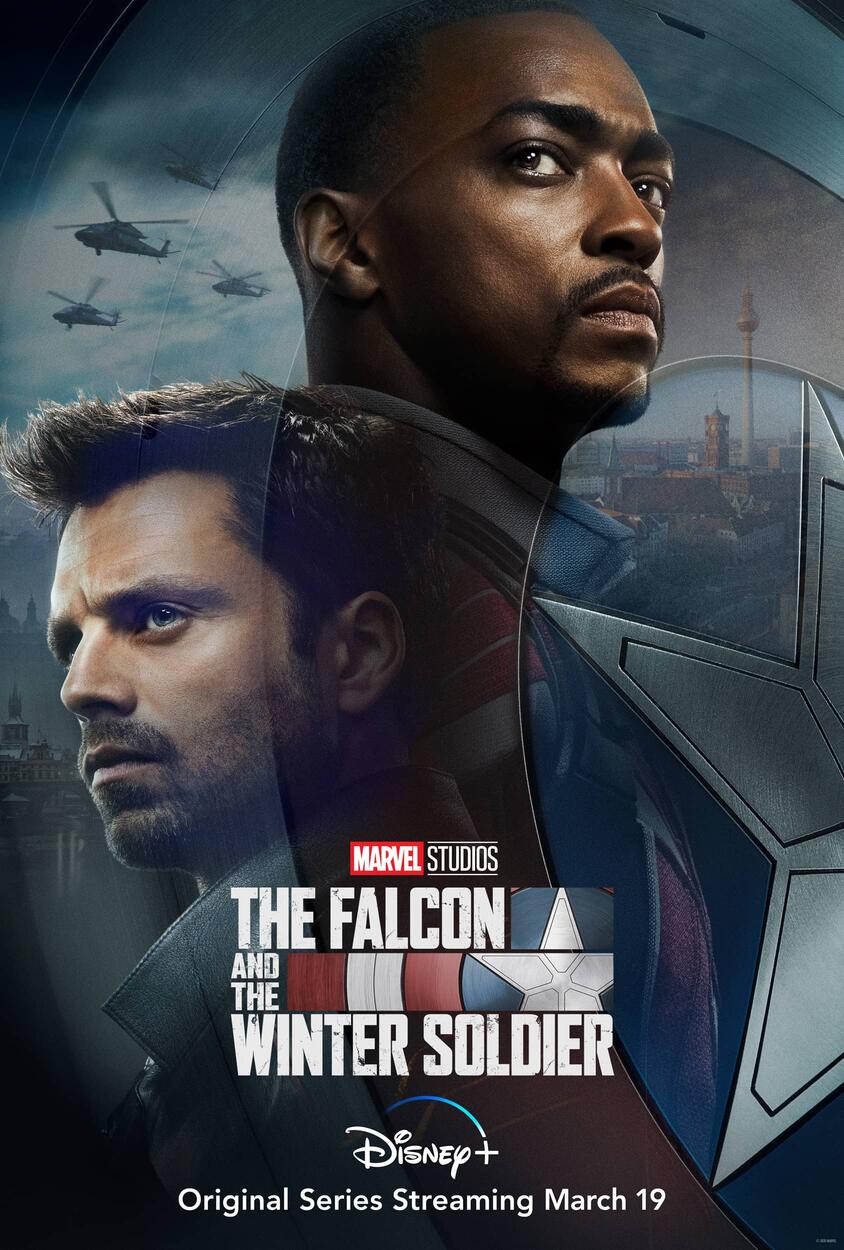 Variety.com — Bucky Barnes will always have an attachment to Captain America, no matter who holds the title. In the new trailer for “The Falcon and The Winter Soldier,” released by Marvel Studios at the Disney Investor Day, Sebastian Stan’s character works alongside the newest Captain America: The Falcon.
Variety.com — Bucky Barnes will always have an attachment to Captain America, no matter who holds the title. In the new trailer for “The Falcon and The Winter Soldier,” released by Marvel Studios at the Disney Investor Day, Sebastian Stan’s character works alongside the newest Captain America: The Falcon.
Played by Anthony Mackie, the Falcon received the honorary title from the original Captain America during the resolution of Marvel’s “Avengers: Endgame,” though he continues to operate under his bird-based persona.
The upcoming series, originally set to release in August of this year, was delayed due to the ongoing coronavirus pandemic, but is now expected to premiere on March 19, 2021. Mackie and Stan star, reprising their roles from the Marvel Cinematic Universe to unfold the journey taken by the Falcon upon receiving the Captain America shield from his now-retired friend.
The series will also feature Daniel Brühl, Georges St-Pierre and Emily VanCamp in returning roles as Helmut Zemo, Georges Batroc and Sharon Carter, respectively. It will feature six episodes directed by Kari Skogland for Disney Plus.
Filming for the series began in 2019, but with production being slowed by the pandemic, final shots were wrapped in late October. Created by Malcolm Spellman, “The Falcon and The Winter Soldier” offered a teaser to fans back during the 2019 San Diego Comic-Con, featuring Brühl’s character in a purple mask. The outfit — an homage to Helmut Zemo’s comic book origins — was well-received by the actor, who said it brought a fresh feeling to the “Captain America: Civil War” character.
Concept art for the show was shared in the short documentary “Marvel Studios: Expanding the Universe” on Disney Plus last year. Spellman and Kevin Feige executive produce the series.
Variety — Universal’s “The 355,” a female-led heist thriller starring Jessica Chastain, Lupita Nyong’o and Diane Kruger, has pushed its release date back a year.
The movie was initially set to open in theaters on Jan. 15, 2021, and will now debut on Jan. 14, 2022.
Simon Kinberg directed “The 355” from a script he wrote with Theresa Rebeck. The globe-trotting espionage thriller follows a group of international spies — a brigade that also includes Penelope Cruz and Fan Bingbing — who team up to stop a potentially world-altering event. Together, the five women form a faction called “355,” a nod to the assembly of female spies that united during the American Revolution. Edgar Ramirez and Sebastian Stan round out the cast.
Universal Pictures nabbed “The 355” after it premiered at the Cannes Film Festival in 2018. The studio reportedly paid more than $20 million for domestic distribution rights.
Like every Hollywood studio, Universal has been forced to shake up the release calendar numerous times during the pandemic. The studio recently moved “Fast & Furious” sequel “F9” to mid-2021, while “Jurassic World: Dominion” was postponed to June of 2022.
A majority of U.S. movie theaters have closed down again as attendance remains flat and coronavirus cases continue to surge. But thanks to a groundbreaking deal forged with major movie theater chains AMC and Regal, Universal is one of the few studios that has continued to release films in recent months. Among the studio’s titles still on schedule for 2020 are the animated sequel “The Croods: A New Age” on Thanksgiving and the Tom Hanks-led Western drama “News of the World” on Christmas Day.
RMH – Ronald McDonald House New York is proud to bring our gala right to your home in support of children battling childhood cancer. This year’s gala will feature a number of celebrity appearances, recognition of our honorees and entertainment. Sebastian was among them. Click here to watch the ceremony with replays through the week. Below is a trailer.
Deadline.com — Legendary has set Sebastian Stan to star opposite Daisy Edgar-Jones in the Lauryn Kahn-scripted social thriller Fresh. Mimi Cave is directing, and Hyperobject Industries’ Adam McKay and Kevin Messick are producing. Production is set to begin in January.
The film’s storyline is being kept under wraps.
Stan will next be seen in the Simon Kinberg-directed The 355, and his work includes I, Tonya, Endings Beginnings, Destroyer and his portrayal of The Winter Soldier in the Avengers Marvel Universe.
Stan is repped by CAA, Brookside Artist Management, Relevant and Sloane, Offer, Weber & Dern.
